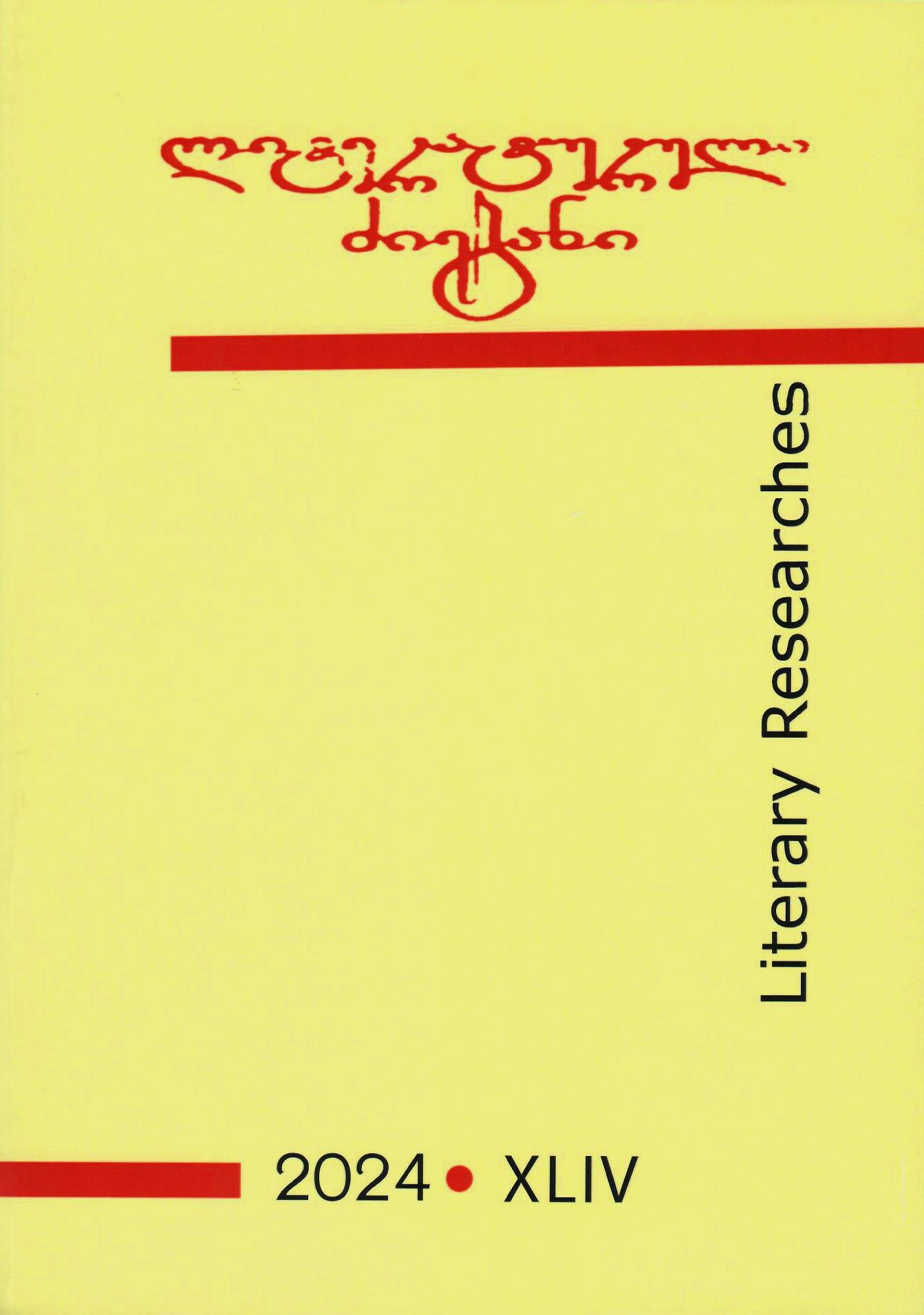გამოქვეყნებული 2024-11-27
საკვანძო სიტყვები
- რობაქიძე,
- ერი,
- ენა,
- ენობრივი მსოფლხედვა,
- პირველცოდნა
როგორ უნდა ციტირება
ანოტაცია
The 20th-century immigrant writer, poet, playwright, and public figure Gr. Robakidze. He extensively discusses the process of language creation and its essence, as well as the connection between language and national phenomenon, in his philosophical sketches, essays, and letters.
Robakidze perceives language as a mental organ of the mind. According to him, the mind is singular and unique, but during the process of actualization, it takes shape, becomes distinguished, and thus, language is born. To elucidate this viewpoint, Robakidze references the famous expression of the Russian philosopher V.I. Soloviev: "Language is the real mind."
Furthermore, the Georgian thinker deliberates on the issue of language creation within the context of nationality and national phenomenon. His letter "Soul and Creation of the Nation" asserts that every nation is a unified social body, and the soul of the nation is an alive, essential entity that exists within the unknowable realm of its members' nature. Robakidze views the authorship of language as collective, belonging to no one individual but involving the participation of everyone within the nation. Robakidze contends that the realization of national phenomenon occurs through the spiritual energy of language, which is expressed in a perfected form. He believes that nationality, as a private entity, is primarily revealed through language.
It is noteworthy to mention the significant influence of the German scientist Wilhelm von Humboldt's energeistic theory of language, linguistic worldview on Robakidze's ideas. This influence is evident in Robakidze's discussions. Additionally, Georgian neo-humboldtologist Guram Ramishvili has extensively researched this topic, particularly in his work "Issues of the Energetic Theory of Language."
Robakidze examines the essence of language and its importance for the nation through the example of the Georgian language. He asserts that the Georgian language embodies primordial knowledge, stating, "The Georgian word is alive – let's say it is the German 'Ursprache,' the first language. In its first existence lies the first knowledge of secrets."
In his creative thinking, Robakidze presents his opinions in a hypothetical manner, which he considers as arguments confirming the primordial knowledge revealed in the Georgian language. For this purpose, he meticulously studies various Georgian words, such as "word," "look," "fruit," "sovereign," "Sunday," "fasting," and others.
In conclusion, this article explores Robakidze's perspective on the process of language creation, its essence, and its relationship to the national phenomenon.

